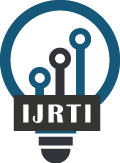|
International Journal for Research Trends and Innovation
International Peer Reviewed & Refereed Journals, Open Access Journal
ISSN Approved Journal No: 2456-3315 | Impact factor: 8.14 | ESTD Year: 2016
Scholarly open access journals, Peer-reviewed, and Refereed Journals, Impact factor 8.14 (Calculate by google scholar and Semantic Scholar | AI-Powered Research Tool) , Multidisciplinary, Monthly, Indexing in all major database & Metadata, Citation Generator, Digital Object Identifier(DOI)
|
Issue: October 2025
Volume 10 | Issue 10
Review Result and Publication of Paper within : 2-3 days
Click Here For more DetailsFor Authors
Forms / Download
Published Issue Details
Editorial Board
Other IMP Links
Facts & Figure
Impact Factor : 8.14
Issue per Year : 12
Volume Published : 10
Issue Published : 113
Article Submitted : 18254
Article Published : 7789
Total Authors : 20583
Total Reviewer : 750
Total Countries : 142
Indexing Partner
Licence
This work is licensed under a Creative Commons Attribution-NonCommercial 4.0 International License







|
Published Paper Details
|
|
| Paper Title: | A study to assess decision making power regarding postnatal diet, exclusive breast feeding and family planning methods among postnatal women in selected rural communities, West Bengal |
| Authors Name: | Mrs. Riku Maji |
| Download E-Certificate: | Download |
| Author Reg. ID: |
IJRTI_185594
|
| Published Paper Id: | IJRTI2303117 |
| Published In: | Volume 8 Issue 3, March-2023 |
| DOI: | https://doi.org/10.5281/zenodo.10675492 |
| Abstract: | A descriptive study was conducted to assess the decision making power regarding postnatal diet, exclusive breast feeding and family planning methods among postnatal women in selected communities of West Bengal. The conceptual framework was based on women autonomy which is adopted from the study “Women‟s‟ autonomy and reproductive healthcare-seeking behaviour” conducted in Ethiopia by Yohannes Dibaba Wado. Population was postnatal women who had children of six months of age group.. 180 samples were taken from the rural communities under Kelejora B.P.H.C. A validated and reliable structured interview schedule was used to assess the decision making power of postnatal women regarding postnatal diet, exclusive breast feeding and family planning methods. The findings of the study revealed that most of postnatal women (97.8%) had strong decision making power in exclusive breast feeding whereas only 31.1% postnatal women had strong decision making power in family planning methods. Majority of (76.1%) postnatal women had strong decision making power regarding postnatal diet. Statistically significant association was observed between decision making power of postnatal women regarding postnatal diet and religion ( 2 = 12.0742, at df 4) at 0.05 level of significance. In the area of exclusive breast feeding there was significant association between decision making power regarding exclusive breast feeding and religion ( 2 = 23.28, at df 2) at 0.05 level of significance. There was statistical significant association between decision making power of postnatal women regarding family planning methods and age of women( 2 = 17.7, at df 2) and parity of women ( 2 = 6.97, at df 2) at 0.05 level of significance. The study has a great implication in Nursing service, education, research and administration. Based on the findings the recommendation is made for a study to find out knowledge and practice regarding postnatal diet, exclusive breast feeding and family planning methods. It is concluded that the magnitude of women‟s decision making power on postnatal diet and exclusive breast feeding is high in this study whereas the decision making power regarding family planning methods among postnatal women is very low. |
| Keywords: | postnatal women, postnatal mother, decision making power, exclusive breast feeding, postnatal diet, family planning methods, descriptive study, survey design, quantitative study, maternal and child health, community based research |
| Cite Article: | "A study to assess decision making power regarding postnatal diet, exclusive breast feeding and family planning methods among postnatal women in selected rural communities, West Bengal", International Journal of Science & Engineering Development Research (www.ijrti.org), ISSN:2455-2631, Vol.8, Issue 3, page no.657 - 678, March-2023, Available :http://www.ijrti.org/papers/IJRTI2303117.pdf |
| Downloads: | 000205227 |
| ISSN: |
2456-3315 | IMPACT FACTOR: 8.14 Calculated By Google Scholar| ESTD YEAR: 2016 An International Scholarly Open Access Journal, Peer-Reviewed, Refereed Journal Impact Factor 8.14 Calculate by Google Scholar and Semantic Scholar | AI-Powered Research Tool, Multidisciplinary, Monthly, Multilanguage Journal Indexing in All Major Database & Metadata, Citation Generator |
| Publication Details: |
Published Paper ID: IJRTI2303117
Registration ID:185594
Published In: Volume 8 Issue 3, March-2023
DOI (Digital Object Identifier): https://doi.org/10.5281/zenodo.10675492
Page No: 657 - 678 Country: NEWTOWN, KOLKATA, West Bengal, India Research Area: Medical Science Publisher : IJ Publication Published Paper URL : https://www.ijrti.org/viewpaperforall?paper=IJRTI2303117 Published Paper PDF: https://www.ijrti.org/papers/IJRTI2303117 |
| Share Article: | |
|
Click Here to Download This Article |
|
| Article Preview | |
|
|
|
Major Indexing from www.ijrti.org
| Google Scholar | ResearcherID Thomson Reuters | Mendeley : reference manager | Academia.edu |
| arXiv.org : cornell university library | Research Gate | CiteSeerX | DOAJ : Directory of Open Access Journals |
| DRJI | Index Copernicus International | Scribd | DocStoc |
ISSN Details
 |
 |
ISSN: 2456-3315
Impact Factor: 8.14 and ISSN APPROVED,
Journal Starting Year (ESTD) : 2016
DOI (A digital object identifier)
 Providing A digital object identifier by DOI.ONE How to Get DOI? |
Conference
Open Access License Policy
Important Details
Join RMS/Earn 300
WhatsApp
Click Here
Click Here
Indexing Partner |
|||
| Copyright © 2025 - All Rights Reserved - IJRTI | |||






